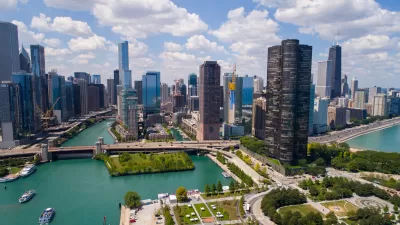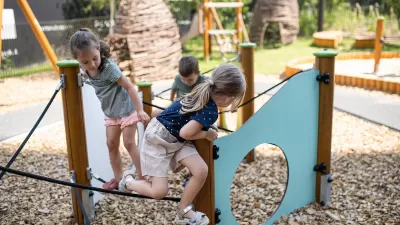In an interview, urbanism scholar Emily Talen discusses what it would take to restore "main street principles" to American towns and cities. Understandably, small retailers play a big role.

In an interview with Eric Jaffe, University of Chicago Urbanism Professor Emily Talen talks about why American streets have shed their main street lineage and what can be done to reactivate them. She references her study of Chicago, which found that only 13 blocks in the entire city conform to a list of main street must-haves.
Talen places emphasis on keeping small retailers in operation and giving their businesses room to grow. "First of all, I'd like to see more listening to what the retailers need. Are regulations hurting them? Is something the city's doing about parking requirements hurting them? It's my sense looking at the literature out there that there hasn't been enough listening to what the local independent retailer needs."
She argues that policymakers and community members should "[see] these small retailers along main street as more of a community anchor, an imperative. Right now it's not looked at like that at all. There is more emphasis on needing a park or a playground. Retailers are not looked at as part of the supporting fabric of neighborhoods."
Eliminating parking requirements and ensuring visibility through storefront windows are some of Talen's prescriptions. So are limits on chain stores and a healthy suspicion of e-commerce, which is "killing small retailers. That's a huge loss for the quality of our cities."
FULL STORY: Quantifying the death of the classic American main street

Planetizen Federal Action Tracker
A weekly monitor of how Trump’s orders and actions are impacting planners and planning in America.

Maui's Vacation Rental Debate Turns Ugly
Verbal attacks, misinformation campaigns and fistfights plague a high-stakes debate to convert thousands of vacation rentals into long-term housing.

Restaurant Patios Were a Pandemic Win — Why Were They so Hard to Keep?
Social distancing requirements and changes in travel patterns prompted cities to pilot new uses for street and sidewalk space. Then it got complicated.

In California Battle of Housing vs. Environment, Housing Just Won
A new state law significantly limits the power of CEQA, an environmental review law that served as a powerful tool for blocking new development.

Boulder Eliminates Parking Minimums Citywide
Officials estimate the cost of building a single underground parking space at up to $100,000.

Orange County, Florida Adopts Largest US “Sprawl Repair” Code
The ‘Orange Code’ seeks to rectify decades of sprawl-inducing, car-oriented development.
Urban Design for Planners 1: Software Tools
This six-course series explores essential urban design concepts using open source software and equips planners with the tools they need to participate fully in the urban design process.
Planning for Universal Design
Learn the tools for implementing Universal Design in planning regulations.
Heyer Gruel & Associates PA
JM Goldson LLC
Custer County Colorado
City of Camden Redevelopment Agency
City of Astoria
Transportation Research & Education Center (TREC) at Portland State University
Jefferson Parish Government
Camden Redevelopment Agency
City of Claremont




























